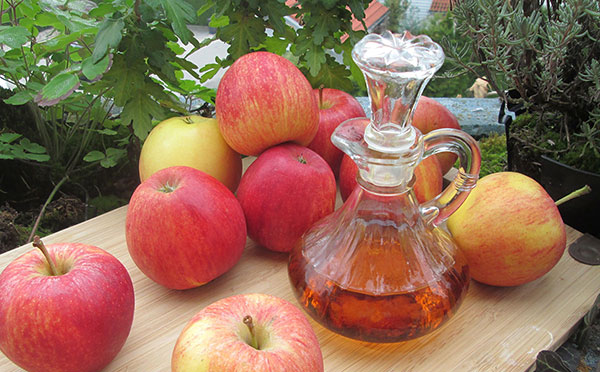Season 1, Episode 8
Is Organic Food Healthier?
Many of us choose organic food because we believe it to be less contaminated or more nutritious. Do the facts support this?
Organic food is the most successful market segment of all time. But is that all it is, or is it actually a way to eat healthier?
Welcome to the show that serves up the real facts behind pop-culture food myths. Saying that organic food is healthier seems completely uncontroversial. That's due, in large part, to the millions of dollars spent over the last several decades by the organic food industry to convince you of exactly that.
But organic, in this context, is really just a marketing term, with no scientific basis. In the U.S. the organic industry used lobbyists to get the USDA to regulate the industry, and then wrote their own regulations. (That's not sketchy at all!)
The USDA National Organic program, which is part of the Agricultural Marketing service, has stated on its web site: "Our regulations do not address food safety or nutrition."
What does healthier mean, anyway? I can use this scale to tell you which of these melons is heavier. I can use a tape measure to tell you which of these carrots is longer. But there's no single-axis metric for "healthy" that can be used to compare any two foods. So let's start by admitting that you simply can't call one food "healthier" than another.
But are there any nutritional or health advantages to consuming organic versus conventional food? Turns out that's been studied for about 50 years and the answer is a resounding "eh, not so much."
Some people pay the premium for organic believing it has no pesticides. In America, organic farming uses more toxic pesticides, often in higher quantities, than conventional farming. The only difference is that their pesticides are designated "natural", something else with no scientific basis. A lot of them are copper based, which is why they're so toxic. Besides, if you wash your produce you do wash your produce, right? the vast majority of the pesticides you eat are naturally produced by the plant itself. Turns out that humans aren't bothered by chemicals produced to mitigate insects or other plants. Probably because we aren't plants or insects.
What about the environment, you may ask? Because it prohibits the use of modern agricultural technology, organic agriculture is less efficient, and therefore uses quite a bit more land than conventional. Thus, organic has a much higher environmental footprint.
Organic food. It may not be better for you, but at least it's more expensive!
References
Avery, Alex.The Truth About Organic Foods.St. Louis: Henderson Communications, L.L.C.; 1ST edition (2006), 2006.
Dangour, A., Aikenhead, A., Hayter, A., Allen, E., Lock, K., Uauy, R. "Comparison of Putative Health Effects of Oragnically and Conventionally Produced Foodstuffs: A Systematic Review."Food Standards Agency.Food Standards Agency, 29 Jul. 2009. Web. 12 Jan. 2010. <http://www.food.gov.uk/multimedia/pdfs/organicreviewreport.pdf>
Hughner, R.S., McDonagh, P., Prothero, A., Schultz II, C.J., Stanton, J. "Who are organic food consumers? A compilation and review of why people purchase organic food."Journal of Consumer Behavior.21 May 2007, Volume 6 Issue 2-3: 94-110.
Kristensen, M., stergaard, L.F., Halekoh, U., Jrgensen, H., Lauridsen, C., Brandt, K., Bugel, S. "Effect of plant cultivation methods on content of major and trace elements in foodstuffs and retention in rats."Journal of the Science of Food and Agriculture.1 Sep. 2008, volume 88, Number 12: 2161-2172.
MacKerron D.K.L. et al. "Organic farming: science and belief."Individual articles from the 1998/99 Report.Scottish Crop Research Institute, 1 Dec. 1999. Web. 22 Jan. 2010. <http://www.scri.ac.uk/scri/file/individualreports/1999/06ORGFAR.PDF>
Mondelaers K., Aertsens J., Van Huylenbroeck G. "A meta-analysis of the differences in environmental impacts between organic and conventional farming."British Food Journal.1 Nov. 2009, 111, 10: 1098-1119.




